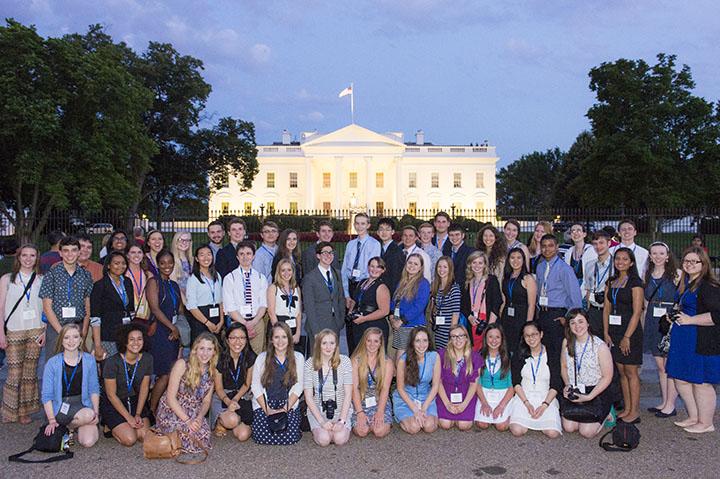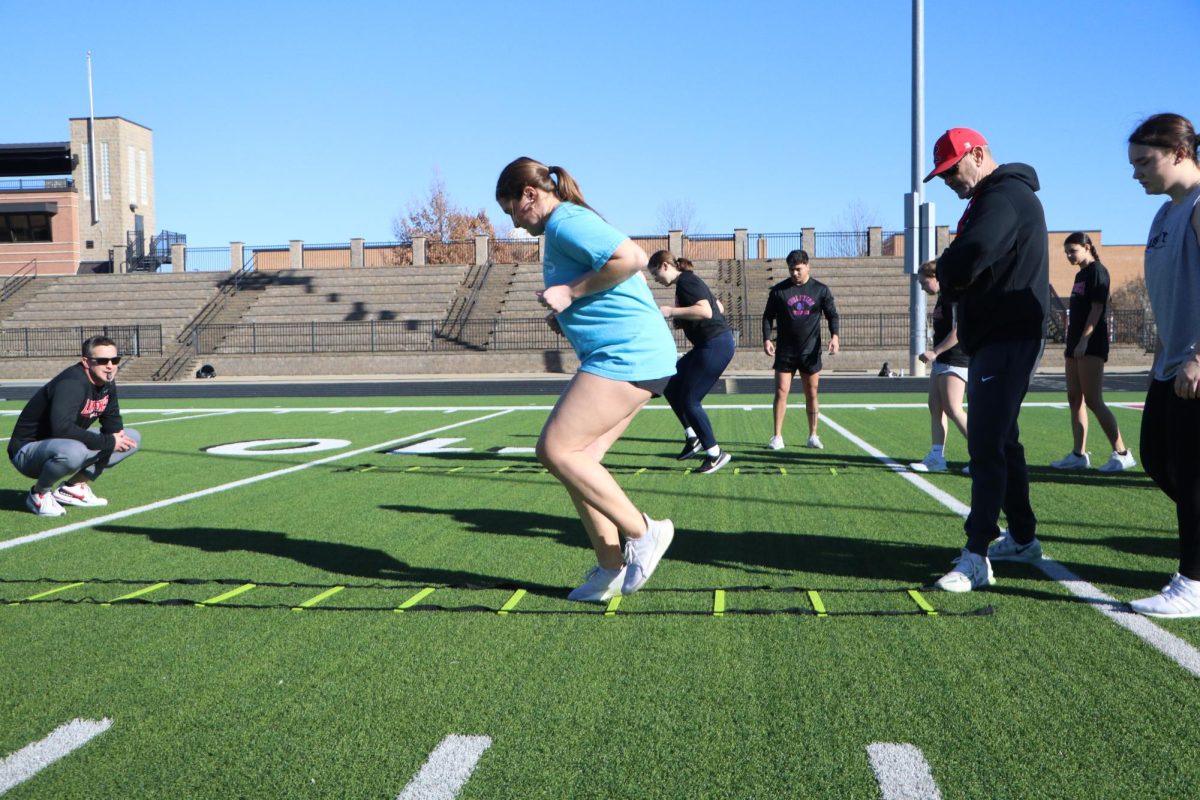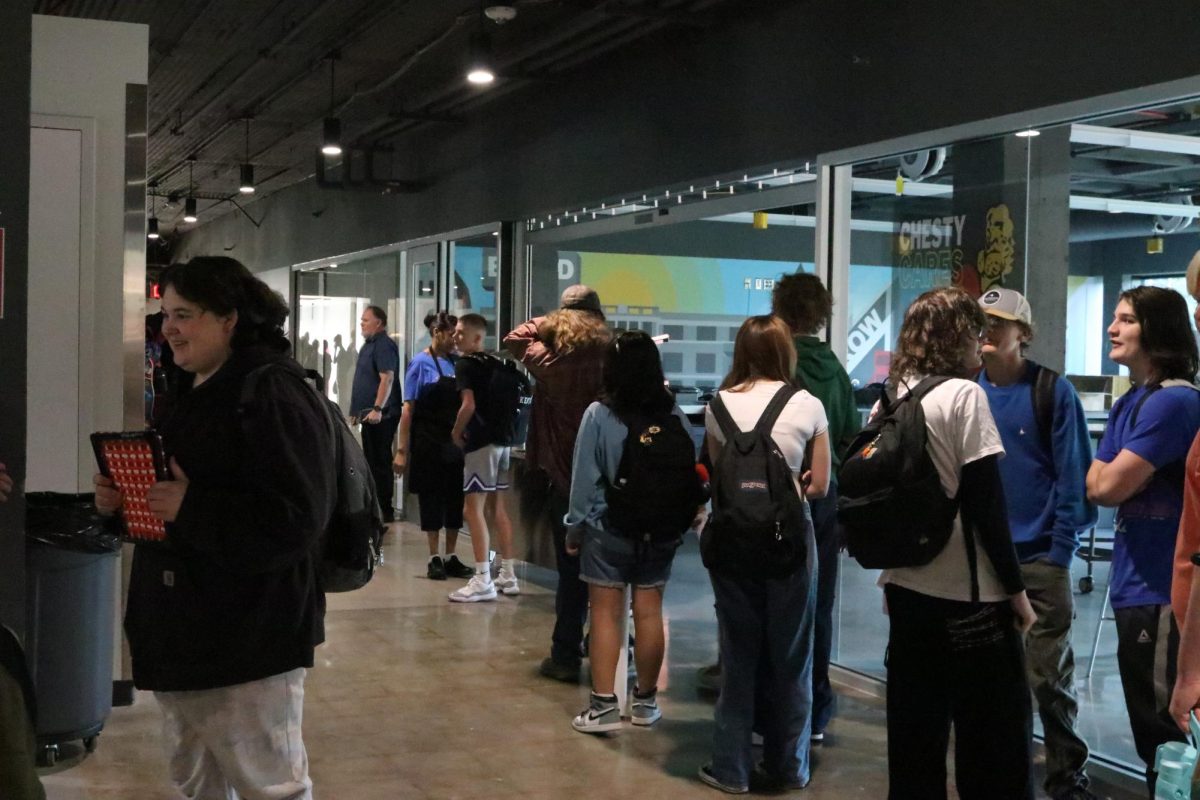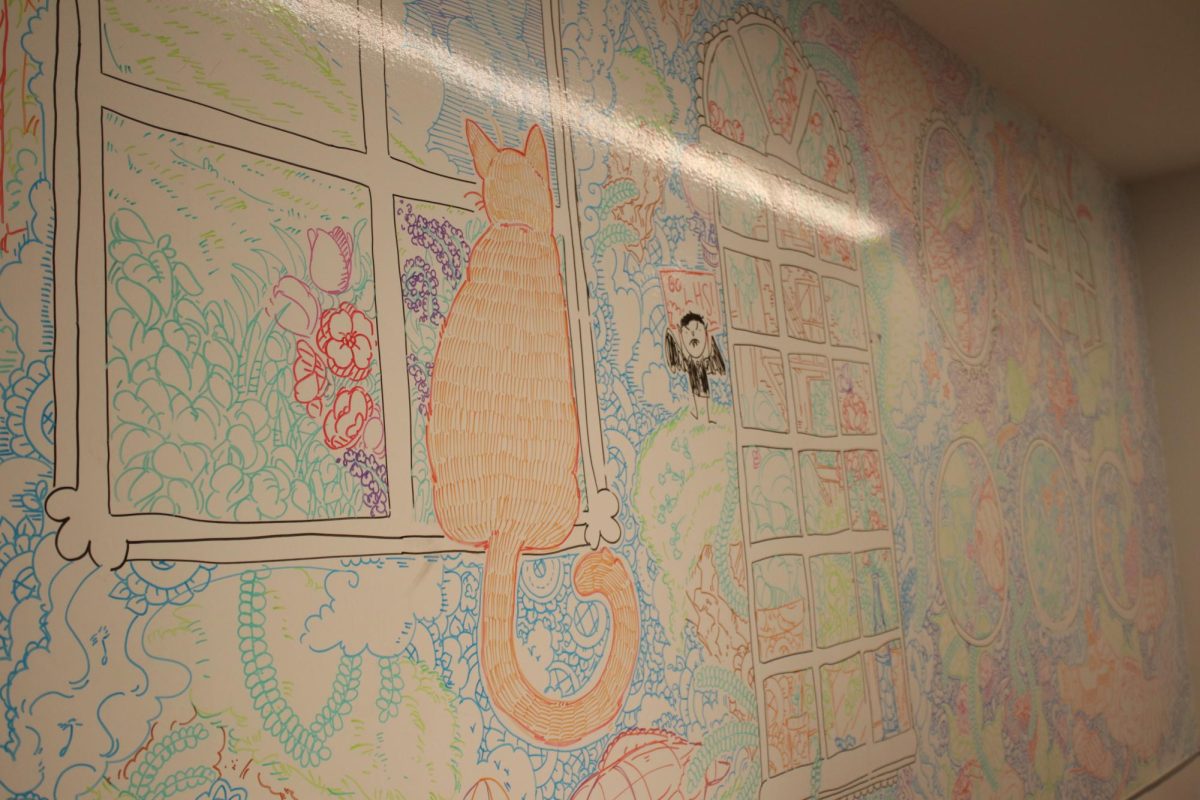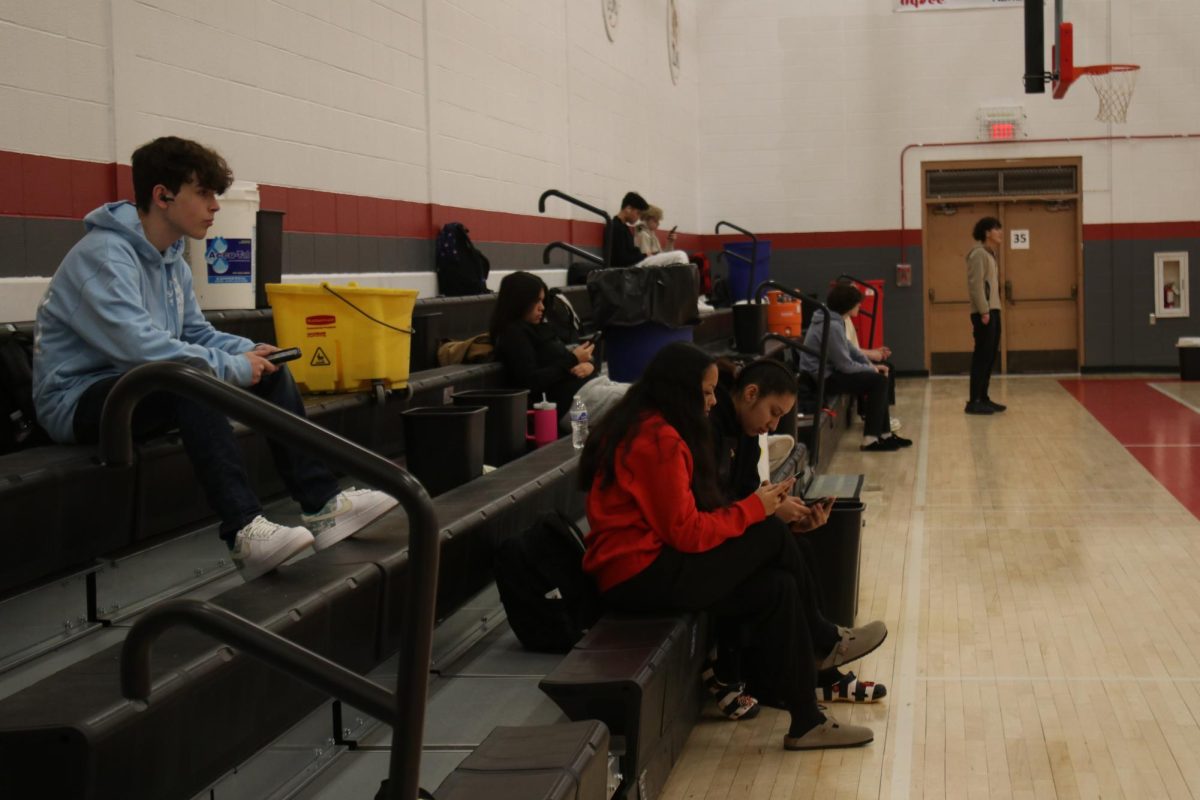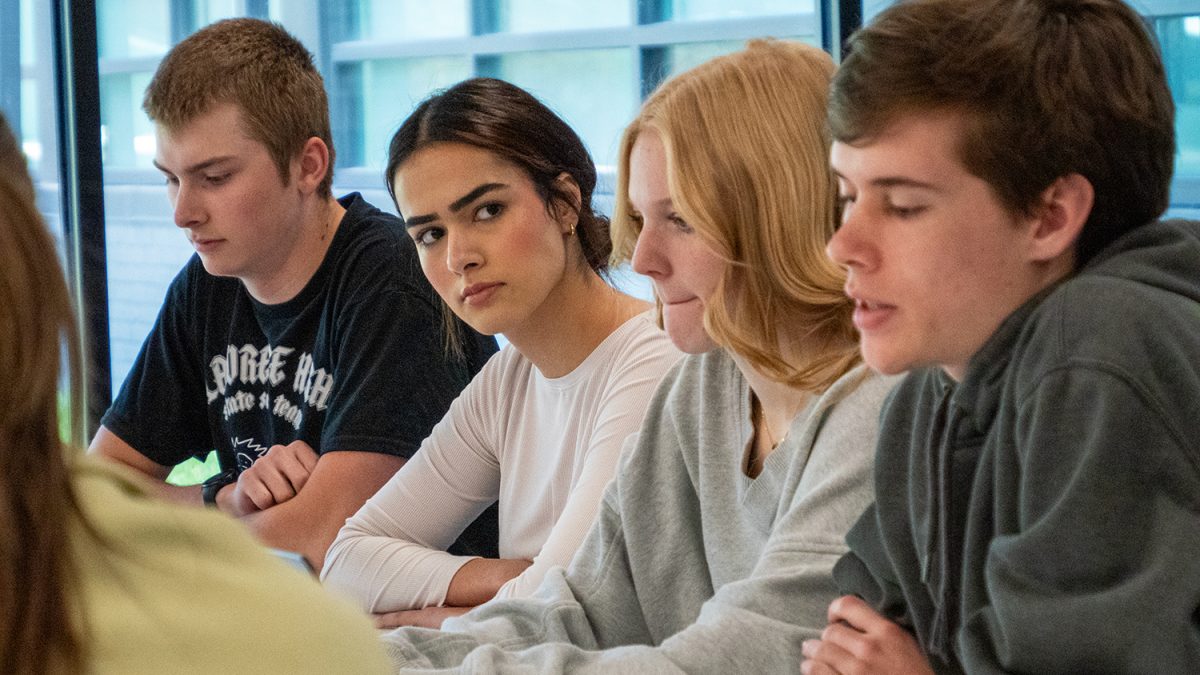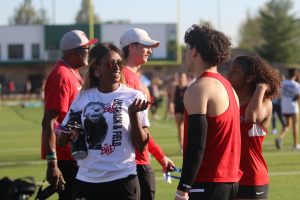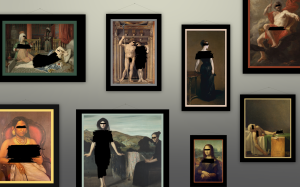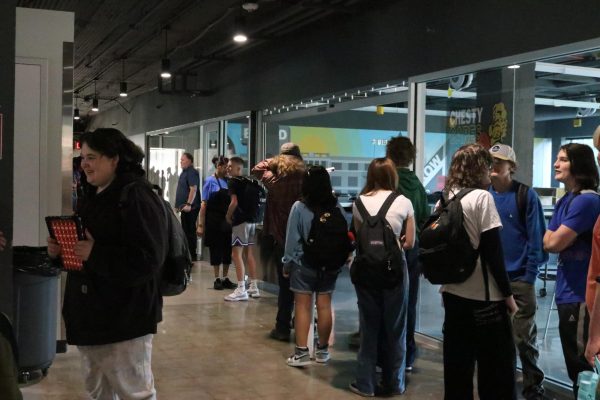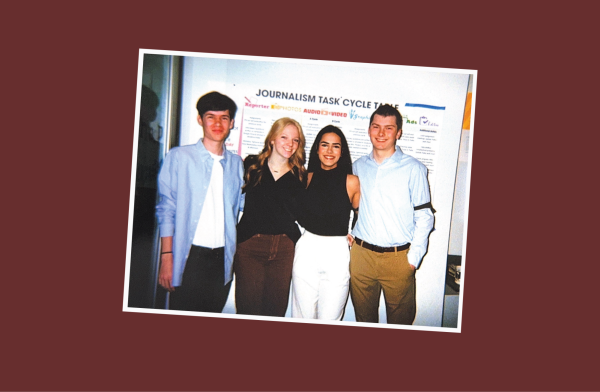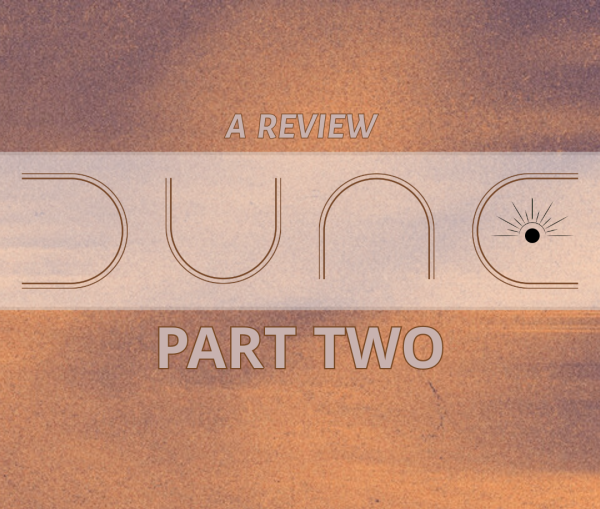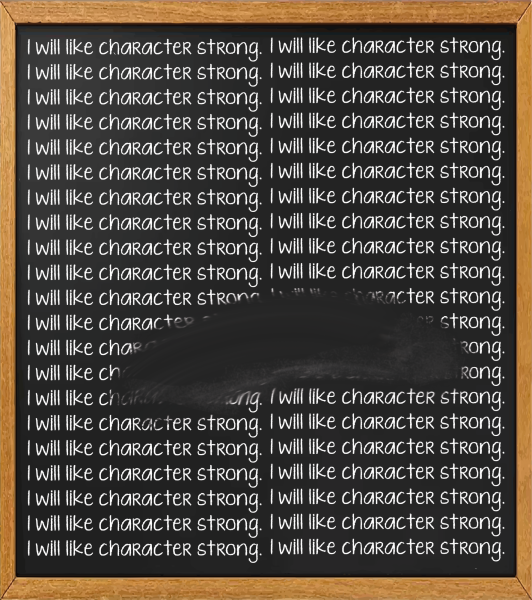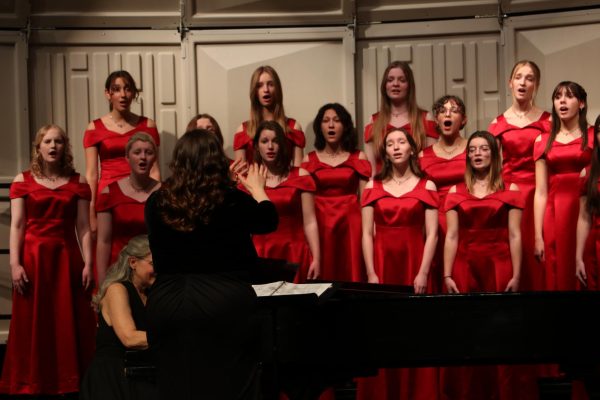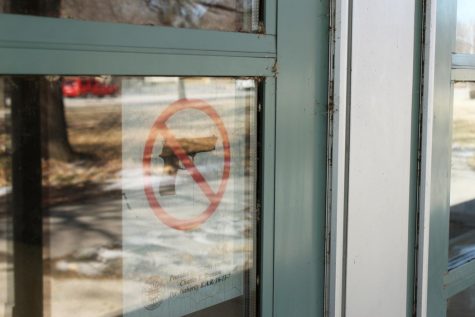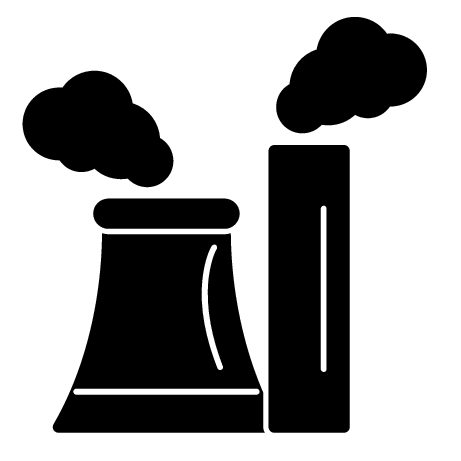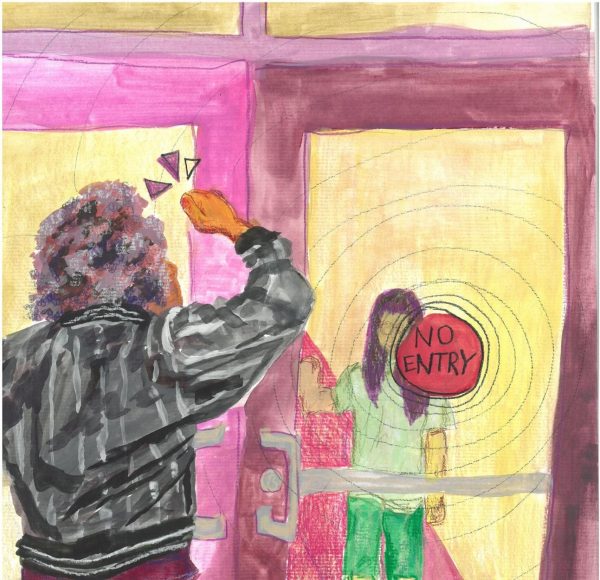Editor joins student journalists from across the nation at D.C. conference
A “Free Spirit” is selected from each state and Washington D. C. to spend a week in the Capitol to learn about the journalism industry. Courtesy of the Newseum Insititute
December 1, 2015
This summer I had the privilege of spending a week Washington D.C. with 50 of the most talented student journalists from around the country. We were led through a jam-packed week of lectures, activities and sightseeing at the expense of the Freedom Forum and the Up Close Foundation. Most of the conference was hosted at the Newseum.
The Free Spirit program was created by Al Neuharth, the founder of USA Today, to ensure young journalists got a head start in the industry.
Before the conference, representatives were sent several of Neuharth’s novels to get an idea of who the man was. Neuharth was an innovator in journalism not only for creating the nation’s first full-color paper, but also for his concise, to-the-point writing style.
Every week from the founding of USA Today in 1982 to his death in 2013, Neuharth published a column called “Plain Talk” in the opinion section of his publication.
To talk about what I learned at the conference, I figured it would be appropriate to write by Neuharth’s example and do it plainly. Because good journalistic writing is accessible to a wide array of readers.
Ask questions about EVERYTHING.
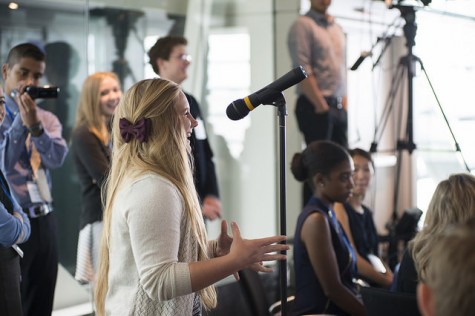
Before the conference started, the representatives were asked to answer the question “What is a free spirit?” This was answered in 51 unique ways, all correct in one way or another.
But by the end of the conference, I came to the conclusion that, above all, free spirits are steadfastly inquisitive.
Every speaker we had received an inexhaustible number of questions. I had never been around a group of people my age who were so curious about anything and everything. Free spirits are sponges for information.
Luckily, we had speakers who were enthusiastic about our questions and largely structured their talks for our inquiries. For example, when Greg Barber from the Washington Post talked changing the interaction between news sources and readers through comment sections of websites, he entertained our questions and suggestions for most of the time he was with us. Getting to interact with field innovators in open forum style gave us representatives the opportunity to learn everything we could about journalistic processes.
We were also audience to several panels of professionals who taught us about everything from how to get hired to publications to the importance of press freedoms.
I learned not only the value of asking questions but also the importance of really listening to the answers, especially when they aren’t what you expect to hear.
Being in the press comes with great power and
great responsibility.
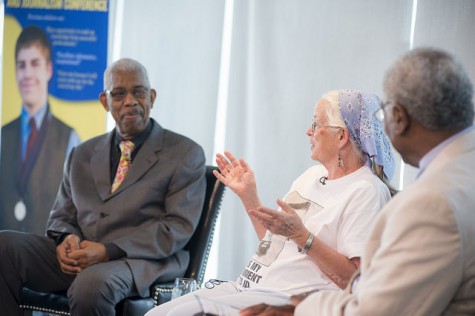
On the last day of the conference, we got to hear from Ernest “Rip” Patton and Joan Trumpauer Mulholland who were a few of the Freedom Riders during the Civil Rights movement. Among the wisdom they shared with us, they talked about the impact of having the press travel with them on their ride to share their stories with the public. Through those stories, the Freedom Riders gained public support, bolstering their fight for equality.
We saw the impact journalism had on public opinion of the Vietnam War in the Newseum’s exhibit, Reporting Vietnam. The first televised war became unpopular to the American public when the gruesome realities of the battlefield were brought back on film and in print.
Writing for public consumption is a huge power. Journalists have the authority to start conversations, movements and revolutions. With that scope of impact, however, comes the responsibility to act carefully and ethically.
We witnessed the effect of an ethical oversight when the episode of “Meet the Press” we saw the taping of came under fire when only black criminals were shown for a segment on the show about gun violence.
Minutes after the segment aired, the twittersphere exploded, calling out the show for seeming racial bias. #FireChuckTodd became a trending hashtag.
Right after the episode Todd attempted to remedy the oversight by retaping a follow-up segment that addressed the issue of race in the video clip to run with the next airing.
For us representatives watching the controversy unfold, it served as a reminder of the importance of ethics considerations in the newsroom.
Although discussion of ethics permeated several conversations we had at the conference, the most valuable lessons I learned about it were those when we disagreed.
Barbara Pearson, a retired USA Today editor, presented several scenarios about ethical issues ranging from whether it was OK to clean up quotes to how to act as members of the press at sporting events.
In almost every situation, the representatives disagreed with the answer she presented and with each other. Sometimes it was a generational difference, sometimes a political or ideological differences that set our ethical principles apart.
My biggest takeaway from that presentation was that while ethics are vital, they’re also fluid and worth scrutinizing.
Journalists must advocate for their own rights to
fight for the rights of others.
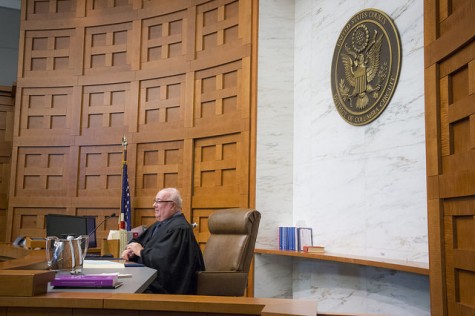
As a journalist, your authority to cover the news is constantly under scrutiny. Everyone from corporations to presidents have challenged publications on their right to cover controversial topics. Learning the rights of the press is essential to being good at reporting.
The First Amendment protects journalists in pursuit of news, and before the conference representatives were challenged to know it word-for-word. None of us got that far, I don’t think, but the five freedoms it protects are well-instilled in every journalist.
- Speech
- Press
- Religion
- Assembly
- Petition
We were ushered into the conference with a “Night at the Newseum” where we all talked about our favorite First Amendment freedom.
We learned about the treatment of the First Amendment in the judicial branch with a visit to a Federal district court, where we role-played a free speech case decided by U.S. District Court Senior Judge Royce Lamberth.
I learned that in the pursuit of rights, even as students, there will always be people on your side. Sometimes you just have to seek them out. We spoke with attorney Adam Goldstein of the Student Press Law Center, who talked about the resources members of the student press have when they come against opposition while publishing controversial material.
Along with freedoms, we were also taught the risks that come with covering the news. The Newseum has an exhibit listing the names of journalists who have died in the line of duty, and there we talked to Dr. Courtney Radch of the Committee to Protect Journalists.
There are entire careers in ensuring the safety of those covering the news in dangerous environments. Especially in places of severe political instability, those who put their lives on the line to tell the stories that need to be told should have a support system of advocates.
Ultimately, the press fights for its freedoms to ensure reporters can do their jobs and advocate for the rights of others. Like the journalists who traveled with the Freedom Riders during the Civil Rights movement, those who risked their lives traveling with military units in Vietnam and reporters today who put their lives at stake to cover the news.
One of my favorite phrases from the conference came from Dr. Charles Haynes, executive director of the Religious Freedom Center. He asserted that journalists, while remaining fair, should fight for the rights of others. Like an “angry, impassioned Switzerland.”
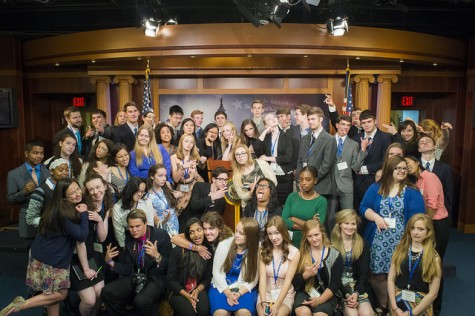
In addition to learning about reporting, the Free Spirit experience taught me life lessons I think speak for themselves.
- When in doubt, talk about weather. Even the most mundane-seeming small talk topics can get
colorful if you’re around the right people. - You can get to know someone a lot better by spending an hour playing Cards Against Humanity with them than spending 10 years going to school with them.
- You think you’re ready for adulthood until you find yourself lost and disoriented in an airport without your parents for the first time
- There is nothing more exciting than finding people who are the same kind of nerd that you are. I consider myself unbelievably fortunate to have met 50 of them all at once.
At the end of each chapter of Neuharth’s book, he would have a full page devoted to “plain talk.” So if I was to condense the conference into one ‘plain talk’ phrase, it would be this:
There will always be a need for good journalism, and there will always be devoted reporters to fill the void, whether it’s in print or on a phone screen. The future of journalism is bright, even if it’s unclear sometimes.
And I’m excited to be a part of it.



